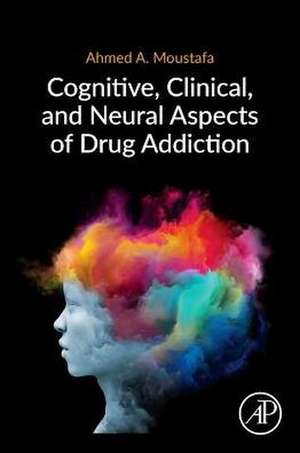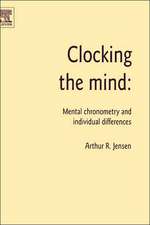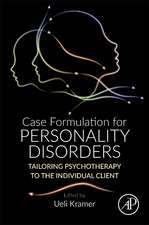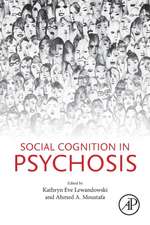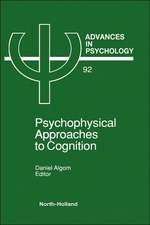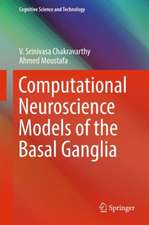Cognitive, Clinical, and Neural Aspects of Drug Addiction
Autor Ahmed Moustafaen Limba Engleză Paperback – 15 ian 2020
- Identifies key factors contributing to addiction, including stress, anxiety and depression
- Reviews inhibition and impulsivity in drug use
- Assesses the cognitive underpinnings of behavioral choices in addiction
- Discusses the argument of self-medication vs. reward sensitization
- Examines the psychological causes of why patients relapse
Preț: 717.33 lei
Preț vechi: 755.09 lei
-5% Nou
Puncte Express: 1076
Preț estimativ în valută:
137.26€ • 143.70$ • 113.57£
137.26€ • 143.70$ • 113.57£
Carte tipărită la comandă
Livrare economică 29 martie-12 aprilie
Preluare comenzi: 021 569.72.76
Specificații
ISBN-13: 9780128169797
ISBN-10: 0128169796
Pagini: 340
Ilustrații: 40 illustrations (20 in full color)
Dimensiuni: 152 x 229 mm
Greutate: 0.45 kg
Editura: ELSEVIER SCIENCE
ISBN-10: 0128169796
Pagini: 340
Ilustrații: 40 illustrations (20 in full color)
Dimensiuni: 152 x 229 mm
Greutate: 0.45 kg
Editura: ELSEVIER SCIENCE
Public țintă
Researchers and clinicians in psychiatry and psychology treating patients with addiction disorderCuprins
1. Learning from aversive vs. appetitive outcome in drug addiction2. The role of contextual processes in drug use and relapse3. Avoidance behavior in addiction4. Behavioral inhibition and impulsivity as factors underlying drug use5. Delay, probability and effort discounting underlying addictive behaviors6. The varieties of risk taking behaviors in drug abuse7. Extinction learning in addiction: relevance to cue exposure therapy8. The psychological causes of relapse9. Future thinking and intolerance of uncertainty in addiction10. The bidirectional relationship between depression and addiction11. The role of stress and anxiety in drug use and relapse12. The effect of trauma on drug use13. Theories of Addiction: self-medication vs. reward sensitization14. Summary and future directions in addiction research
Recenzii
"This is a fairly technical book requiring that readers have some understanding of theories of neurocognition and cognitive thinking to fully appreciate the content. The main focus of this book is that these neurocognitive processes are the cause of addictions. The question that remains is: are these issues the cause of addiction or merely the result of the underlying neurobiological underpinnings of these disorders? Nonetheless, understanding these cognitive processes will help one better understand and treat those with addictions." --Doody
